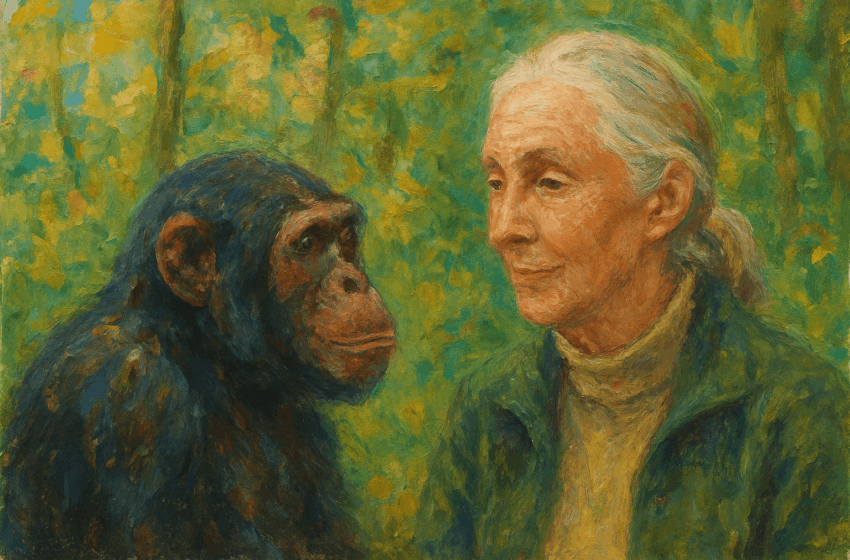Dr. Jane Goodall – A Legacy That Transcends Nobel Prizes

As the world awaits the announcement of this year’s Nobel Prizes, the news of Dr. Jane Goodall’s passing reminds us that some of the greatest scientific legacies are not defined by medals or ceremonies, but by their enduring impact on how humanity understands itself.
Dr. Goodall, who revolutionized the study of animal behavior through her decades-long research on chimpanzees at Gombe, never won a Nobel Prize. Yet few scientists have changed the way we think, observe, and act toward the natural world as profoundly as she did.
1. A Scientist Who Redefined Science
When Dr. Jane Goodall arrived in Gombe Stream National Park in 1960 with little formal scientific training, the world of zoology was a different place. Behavioral science prized detachment and objectivity. Dr. Goodall did the unthinkable — she gave her subjects names instead of numbers, recorded their emotions, and described their personalities.
Her patient observations led to groundbreaking discoveries — that chimpanzees make and use tools, hunt cooperatively, and express emotions in ways strikingly similar to humans. These findings challenged long-held boundaries between humans and other species, forcing scientists to reconsider the very definition of what it means to be human.
2. Why Was She Not a Candidate for a Nobel?
Despite her revolutionary insights, Dr. Goodall’s work did not fit neatly into any Nobel Prize category. The prizes are awarded in physics, chemistry, physiology or medicine, literature, and peace — none of which naturally encompass the interdisciplinary blend of primatology, ethology, anthropology, and conservation that defined Dr. Goodall’s career.
Her science was observational rather than experimental, qualitative rather than quantitative — qualities that, for much of the 20th century, were undervalued in the scientific establishment.
If there had been a Nobel Prize for ecology or behavioral biology, Dr. Jane Goodall would almost certainly have been among its earliest laureates.
3. Recognition Beyond Awards
Awards, as prestigious as they are, capture only a narrow view of impact. Dr. Goodall’s true legacy lies in her influence on generations of scientists, especially women, who saw in her a model for curiosity, empathy, and persistence.
She received other major honors — the Kyoto Prize, the Templeton Prize, and recognition as a UN Messenger of Peace — but her reach extended far beyond academia. Through the Jane Goodall Institute and Roots & Shoots, she became a global voice for environmental education, conservation, and youth empowerment.
4. Lessons for Today’s Scientists
Dr. Goodall’s story offers a powerful lesson at a time when prizes, metrics, and citations often dominate scientific culture.
True impact is not always measured in awards but in the questions you ask, the boundaries you cross, and the perspectives you shift.
She showed that empathy and science are not opposites — they are partners in understanding life on Earth.
As we celebrate this year’s Nobel laureates, it is worth remembering that scientific greatness sometimes lies outside the Nobel’s reach — in the quiet courage to observe, to listen, and to care.





